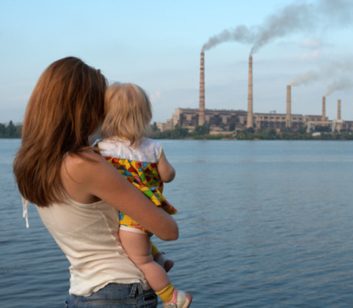News: Autism linked to air pollution
If you live in a highly-polluted area and are planning to have children, a new study might make you consider

If you live in a highly-polluted area and are planning to have children, a new study might make you consider a move.
The study, published in the journal Environmental Health Perspectives, is the first national research that shows air pollutants may increase risk for autism spectrum disorder.
Using data from the U.S. Environmental Protection Agency and the Nurses’ Health Study, researchers looked for a link between the level of air pollutants at time and place of birth and the likelihood that a child would have autism.
They found that the higher the exposure of pregnant women and their newborns to diesel, lead, manganese, mercury, methylene chloride, and an overall measure of metals, was significantly associated with autism spectrum disorder.
“Women who were exposed to the highest levels of diesel or mercury in the air were twice as likely to have a child with autism than women who lived in the cleanest parts of the sample,” study author Andrea Roberts, a research associate with the Harvard School of Public Health, told The Huffington Post.
Before you pack your bags and head for the countryside, researchers caution that it’s too early to tell which (if any) pollutant is to blame.
“Our data is not good enough to know which thing in the air might actually be causing this [link], if it even is something in the air that is increasing the risk of autism,” Roberts told the Huffington Post.
That being said, spending time in nature can make you (and your baby) happier and healthier – so you may not be planning a move, but it’s always good to get some fresh air.
-Katharine Watts, associate web editor
Related:
‘ How pollution impacts the brain
‘ Can pollution increase risk of heart disease?
‘ The worst Canadian cities for allergies




